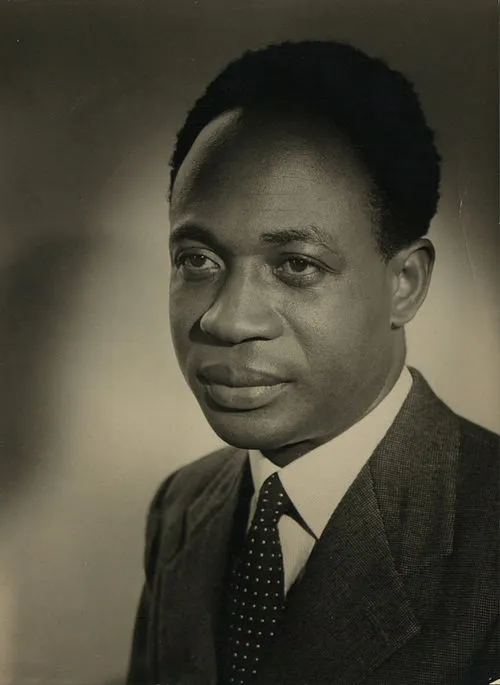
Full Name: Sándor Kocsis
Nationality: Hungarian
Profession: Footballer and Manager
Birth Year: 1929
Death Year: 1979
1929 – Sándor Kocsis, Hungarian footballer and manager (d. 1979)
As the sun rose over Budapest in 1929, a future legend was quietly making his entrance into the world. Sándor Kocsis, born into a modest family, grew up in an environment where football was more than just a pastime; it was woven into the fabric of daily life. Ironically, what started as a simple game in dusty streets would soon turn him into one of Hungary's most celebrated sports icons.
During his formative years, young Kocsis was captivated by the art of football. The sounds of leather balls echoing against stone walls became music to his ears. However, it wasn't until he joined local clubs that he began to hone his skills. His natural talent shone through early on; at just 14 years old, he signed with Ferencváros’ youth team a significant milestone that hinted at the extraordinary career ahead.
Fast forward to the late 1940s: Hungary was experiencing a football renaissance unlike any other nation had seen before. In this golden age of Hungarian football known as "The Magical Magyars," Kocsis made waves as a formidable forward known for his goal-scoring prowess and remarkable aerial ability often referred to as "the head of God." It’s said that perhaps his most defining moment came during the 1954 FIFA World Cup held in Switzerland, where he scored an astounding eleven goals throughout the tournament.
Yet even amidst such triumphs, life threw its fair share of challenges at him. In fact, despite being instrumental in leading Hungary to international fame and success on numerous occasions including their legendary victory over England at Wembley Kocsis also faced heartbreaking moments off the field. For instance, who knows how many sleepless nights haunted him after losing to West Germany in what became known as “the Miracle of Bern”? That devastating defeat arguably shaped not just Kocsis but also an entire generation’s understanding of resilience and heartbreak.
After carving out an incredible legacy with Ferencváros and later moving on to play for Barcelona where he continued scoring goals with elegance and flair the early 1960s saw Kocsis transition from player to manager. This shift didn’t come without its own hurdles! Managing teams would present new obstacles that tested not only his tactical acumen but also his ability to inspire others a trait often overshadowed by his playing days.
In examining Kocsis’ coaching style during this time, one might argue that perhaps it reflected elements from both Hungarian tactical approaches and those learned abroad while playing in Spain; blending innovation with tradition like mixing vibrant colors on canvas!
Throughout much of Europe during this period and especially back home football had evolved into more than just sport; it became a national identity amid political strife... Yet no matter where Sándor coached or played thereafter from Spain back again across various clubs in Hungary his presence commanded respect!
Kocsis retired from active management towards late 1970s but remained involved within football circles until health issues forced him away from public life altogether... By then though! His contributions had left indelible marks etched forever within hearts and fields across continents!
The saga took another poignant turn when Sándor Kocsis passed away on July 22nd, 1979 a day when many mourned not merely for their hero’s passing but reflected upon what greatness truly means! Perhaps one reason why he continues being remembered fondly today is due largely because people instinctively connect certain values associated with legendary players like himself: perseverance against adversity paired harmoniously alongside incredible talent showcased throughout dynamic careers.
This enduring legacy finds resonance even now among younger generations aspiring toward greatness both within sport and beyond! For instance… Today’s athletes often evoke similar sentiments whether consciously or unconsciously inspired by figures such as Kocsis who embodied passion fueled towards achieving one's dreams while never forgetting origins even if they later soar high above earthly expectations...
The ripples caused by his journey remind us how profound sports can be not only showcasing skillful plays but uniting diverse cultures through shared experiences witnessed during matches played out before roaring crowds around globe…
Early Life and Career
Kocsis grew up in a family that encouraged sports, and he quickly developed a passion for football. His journey began in local clubs, where he honed his skills and exhibited a natural talent for goal-scoring. In 1947, he joined the youth team of Ferencvárosi TC, where he began to attract attention for his impressive performances.
Professional Career
In 1949, Sándor Kocsis signed with the famous club MTK Budapest. It was here that he solidified his reputation as a striker with remarkable finishing skills and an uncanny ability to read the game. Kocsis scored 75 goals in 80 appearances for MTK before moving to Barcelona in 1958, where he became a crucial player for the club. During his time in Spain, Kocsis was part of a legendary team that included the likes of Lionel Messi and Alfredo Di Stéfano, paving the way for future generations.
At Barcelona, Kocsis enjoyed tremendous success, clinching multiple titles, including the La Liga championship. He became the club’s top scorer in several seasons, and his knack for finding the back of the net earned him a reputation that transcended borders.
International Career
Kocsis also made significant contributions to the Hungarian national team, famously partaking in the team often referred to as the “Golden Team.” His most notable achievement was during the 1954 FIFA World Cup, held in Switzerland, where Kocsis scored a staggering 11 goals, ultimately leading Hungary to the final against West Germany. Despite the heart-wrenching defeat, his performances during the tournament were a testament to his exceptional talent.
Coaching Career and Later Life
After retiring as a player, Kocsis transitioned into coaching, sharing his vast knowledge of the game with future generations. He managed various clubs, including the Hungarian national team for a brief period. His experience and wisdom were invaluable, aiding in the development of several young talents in Hungarian football.
Sándor Kocsis passed away on July 21, 1979, in Barcelona, Spain, leaving behind a rich legacy that is celebrated by football fans around the world. He is remembered not only for his scoring prowess but also for his contributions to the game as a player and a manager.










